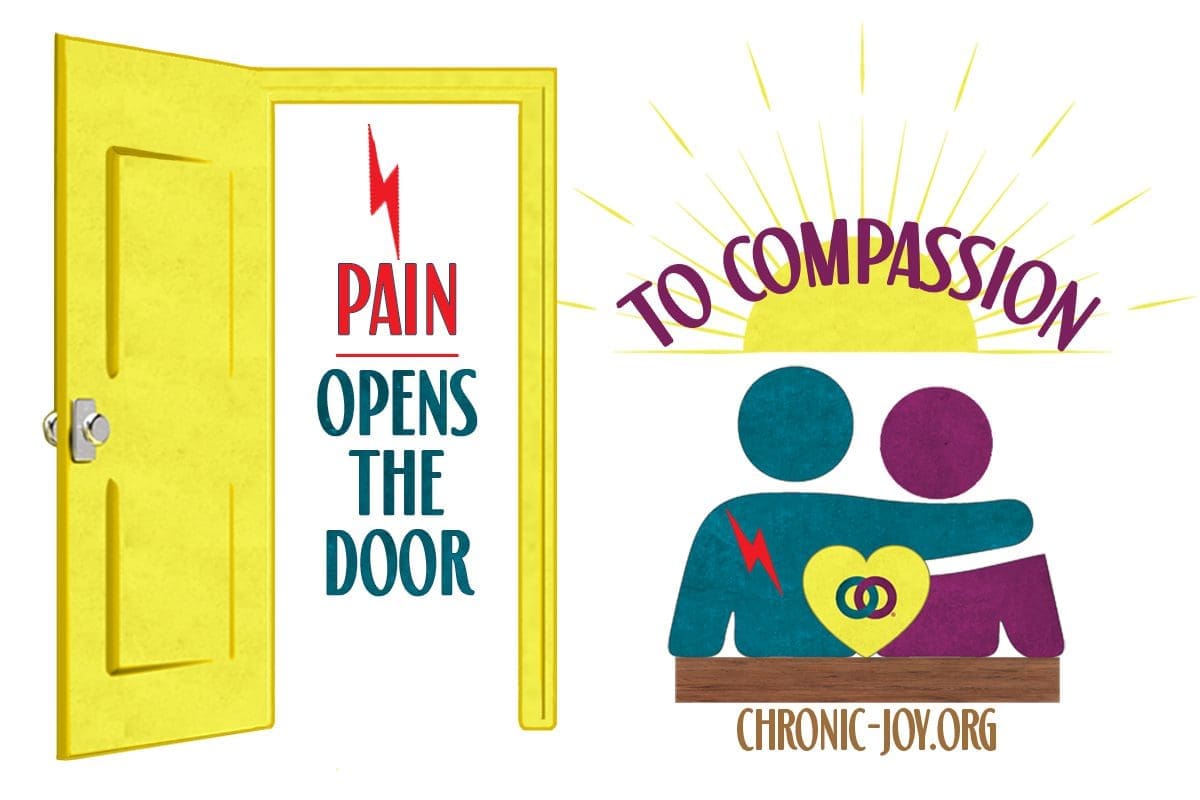
PAIN & COMPASSION
Pain opens the door to compassion.
Cultivated by the Spirit’s compassion, pain invites us to care deeply for one another, grow together, suffering with one another so that none of us is isolated or alone. Pain opens the door to the Spirit’s compassion in us.
Now I’m sure of this: the sufferings we endure now are not even worth comparing to the glory that is coming and will be revealed in us. (Romans 8:18)

No life is Pain-Free
Pain is difficult. It can cause us to withdraw, ignore the phone, cancel invitations, and stop reaching out altogether. Long-endured, it can shrink our world, causing the light to dim, but there is also hope. The tender compassion of the Holy Spirit in can set our pain-sequestered spirits free.
Where pain dismantles, the Spirit’s compassion can flourish.
Pain doesn’t diminish hope. Having suffered loss upon loss, Job uttered these words, “Even if he slays me, I will wait for him with hope.” (Job 13:15)
Like Job, we will suffer as we journey through life on this fallen planet, but pain can become an invitation to walk in compassion.
“We live in a broken, fallen world with broken, fallen people who do broken, fallen things … Multiply that brokenness and fallenness by eight billion people, and you have a massive, incalculable amount of pain and heartache that can have a powerful, humbling effect on us.” (Pastor Ben Young)
No life is pain-free on this side of Heaven. Yet as pain causes us to suffer, it also cultivates the soil for compassion to germinate and flourish. Compassion begins when we “suffer together” (The Latin roots for the word compassion are pati, which means to suffer, and com which means with.).
“Compassion asks us to go where it hurts, to enter the places of pain, to share in brokenness, fear, confusion, and anguish. Yes, compassion challenges us to cry out with those in misery, to mourn with those who are lonely, to weep with those in tears.” (Henri Nouwen)
Our pain is not pointless when our lives are devoted to God. We can rest in the confidence of knowing He is allowing it for a greater purpose (Romans 8:28) and that one day, we will be freed from pain forever (Revelation 21:4).
WASH AWAY OUR PAIN, LORD
Lord, as the winds blow, breathe Your strength into us. As the sun shines, warm our hearts with Your hope. As the birds fly, lift our minds to see Your hand in every atom of creation. As the plants grow, restore our bodies. As the rain falls, wash away our pain. Lord, You are so much more than able. Thank you, and amen!



